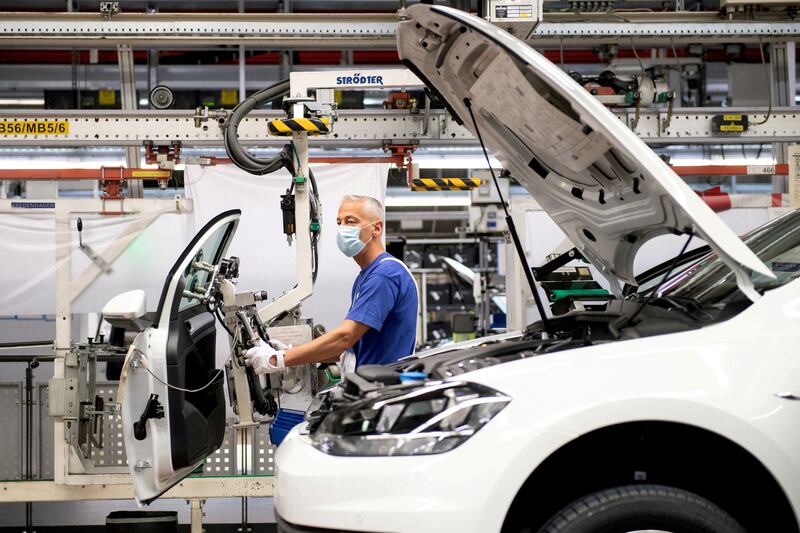Some of Europe’s biggest car makers are looking more and more like retail banks. Renault, Volkswagen and BMW are among those making a push into the business of taking customer deposits.
They say it is a cheaper way to finance car leasing after an unprecedented rise in interest rates made corporate bond issuance – the primary means of funding in recent years – far less attractive.
Car makers’ finance companies can use the deposits they attract to backstop loans to other customers, helping keep sales going. It is a change from the ultra-low rates era, when they were able to sell bonds cheaply to raise funds and use that money for customer loans.
Some car maker accounts require deposits to be left for a certain amount of time, but others have no time limit and are akin to a savings account at a traditional bank.
“In the current positive rate environment, deposits have become significantly cheaper than market funding,” said Jean-Marc Saugier, vice president, finance and group treasury at Renault’s Mobilise Financial Services.
The French car maker started its deposit-taking business in 2012 to diversify its funding, but has been making a big push into banking since last year. It funded nearly half of its car loan programme through deposits last year, up from 35 per cent in 2018.
Volkswagen has also had a banking business for a long time – more than three decades. But the sharp rise in costs for other forms of financing, including corporate bond issuance and asset-backed securities, has made it more important than ever.
The car giant, which recently announced plans to combine its Volkswagen Financial Services and Volkswagen Bank units, has raised interest rates on customer deposits twice this year, to the current 3.1 per cent rate, in a bid to attract more savers.
About 160,000 new accounts have been opened since the start of the year, adding about €8 billion ($8.7 billion) in deposits, according to a representative.
Fellow German car maker BMW also offers deposit accounts through its financial services unit, with rates of up to 3.2 per cent, according to its website. Like Volkswagen, BMW has recently raised interest rates for fixed-term deposits and call money – or savings – accounts, the company said.
BMW has been able to significantly increase its total deposit volume, and deposits play an important strategic role in the refinancing mix of the car maker’s banking unit, a representative said.
Driverless electric flying car unveiled by Chinese company

Car makers’ efforts to attract deposits comes as they face spiralling borrowing costs on new debt. The yield on a Bloomberg index of European car bonds has risen to 4.23 per cent from 0.29 per cent in the past two years.
RCI Banque, the issuing entity behind Renault’s banking unit, sold €750 million of five-year bonds last month with a yield of 4.95 per cent – a big jump from the 0.62 per cent on debt it issued in January 2022.
“Auto makers are keen to get as many deposits as they can. They have exceptional brand name recognition among depositors in countries like Germany and France,” said Nesche Yazgan, a senior credit analyst at RBC BlueBay Asset Management.
At the same time, savers in Europe do not have as many options as those in the US, where money-market funds provide an easy alternative to traditional banks, she said.
To be sure, car makers will still need to issue bonds despite the growing contribution from deposits. Car companies in Europe sold €8.45 billion in bonds in the region in May, the biggest month for auto debt issuance in six years, according to data compiled by Bloomberg, as they took advantage of good market sentiment to get ahead of coming debt maturities.
The increasing cost of that debt may translate to higher car loan rates for customers, with implications for demand for new cars, according to some analysts.
Still, savers like Pere Domec, a teacher from Lerida in Spain, continue to be attracted by the higher rates offered by some car makers.
He first started investing with Renault’s bank about a year and a half ago, when the rate paid on a Spanish instant access account was around 1.2 per cent. That rate has since jumped to more than 2.6 per cent, he said.
ING Groep, which is active in Spain with its online bank, offers a rate of 1.25 per cent on its savings account.
“After doing my homework, we decided to invest,” Mr Domec said. “There’s no reason in Spain now to stay with one of the big banks that will give you so little for your money.”






